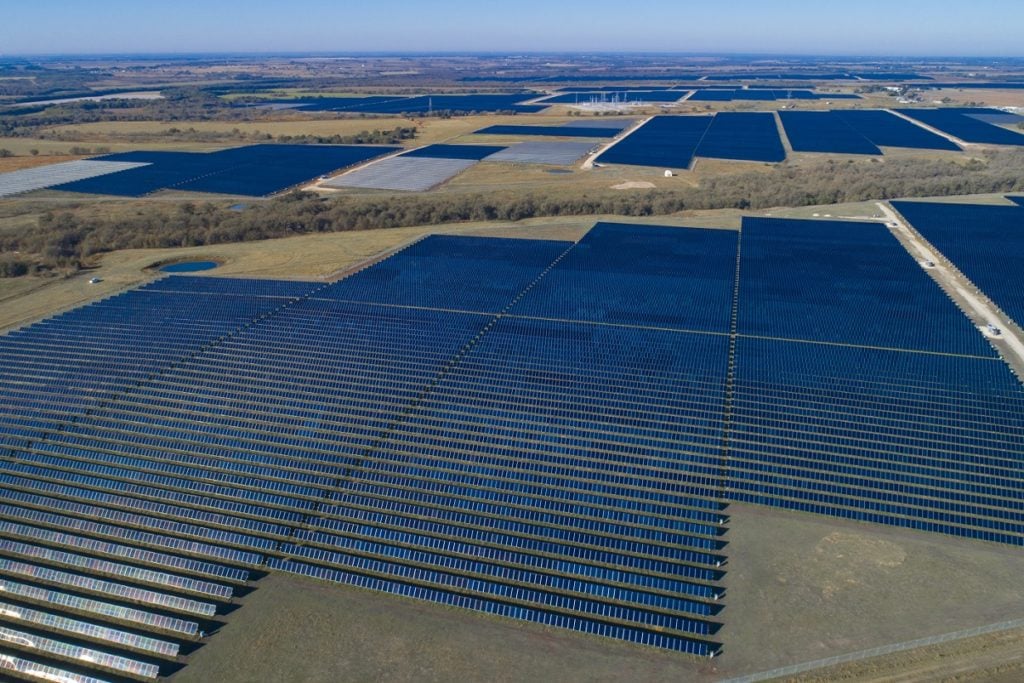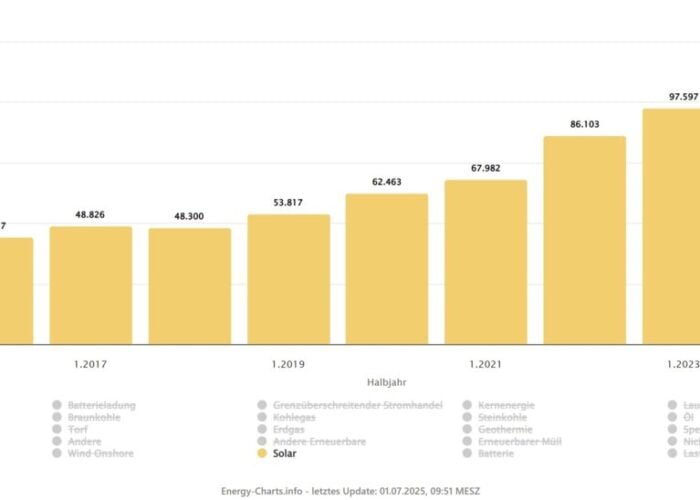
Lightsource bp, the solar power division of oil and gas major BP, has launched a request for submissions for its latest multi-buyer corporate power purchase agreement (PPA), a move which it claims will enable smaller businesses to access solar power in Europe.
The company first implemented this multi-buyer PPA model in October this year, signing a PPA with the Fashion Pact, a collective of fashion and textiles companies. As part of that agreement, the individual fashion companies were able to access electricity produced by Lightsource bp’s solar projects, without taking on the risk associated with individually signing a large-scale PPA, and Lightsource bp is looking to bring that model to other industries in Europe.
Unlock unlimited access for 12 whole months of distinctive global analysis
Photovoltaics International is now included.
- Regular insight and analysis of the industry’s biggest developments
- In-depth interviews with the industry’s leading figures
- Unlimited digital access to the PV Tech Power journal catalogue
- Unlimited digital access to the Photovoltaics International journal catalogue
- Access to more than 1,000 technical papers
- Discounts on Solar Media’s portfolio of events, in-person and virtual
“This an exciting opportunity to spread the benefits of solar to a wider group of beneficiaries,” said Zosia Riesner, director of power markets at Lightsource bp. “We’ve seen some of the world’s largest businesses using PPAs to benefit from the affordable and predictable pricing of renewables while supporting the energy transition’s continuing momentum.”
PPAs are nothing new in the renewable energy sector, and can provide easy access to clean energy for companies in other industries. However, LevelTen Energy reports that the increased popularity of such deals has driven the price of PPAs in Europe to an all-time high, reaching a new peak of €76.84 (US$82.4)/MWh in the fourth quarter of last year.
While the company did not announce which groups would be eligible to participate in the PPA, it noted in the announcement of the initiative that it intends for “buyers with lower electricity demand” to express interest in the programme.
However, question remain as to the efficacy of the programme in opening up access to solar power, with the obvious criticism that agreeing to a PPA with Lightsource bp will only provide access to the company’s solar projects, rather than solar power more broadly. Lightsource bp has invested considerably in new solar power generation this year, including a 135MW project in the US state of Arkansas, and the company’s commitment to new PPA deals could encourage other solar developers to follow this precedent.







